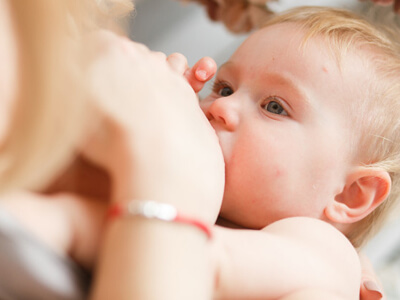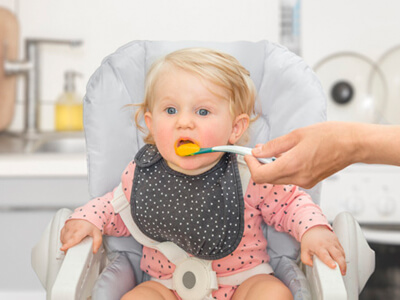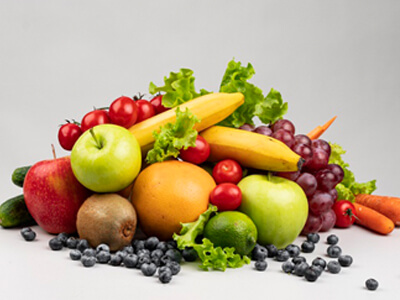Babies are precious gifts for all of us by God. It is required to care of your newborn baby. In this blog, I will tell you some Baby Care Tips. And explain you how to care of newborn baby?
For the care of a baby, it is first required to care for his mother.
You can learn about Pregnancy Care Tips from here.
A pregnant lady requires more attention than a normal person. Pregnant lady should do plenty of rest and it is more important to take care and give a lot of love to your pregnant wife.
How to care 0 to 6 month baby

6 month Baby Care Tips
People say babies are shadow of God, because they are so innocent, cute and not harm anyone. 0 to 6 months are physical development period of new born baby. Here we get to know how to care of your baby.
- The first requirement of new born baby is mother milk. Mother’s milk is full of nourishment and healthy for new born baby.
- Doctors give suggestion to give mother’s milk to new born baby between 0 to 6 month.
- A new born baby identifies their mother from 3 days by the smell of mother’s milk.

- Breast feeding feels comfortable and pain free and it is good for health of new born baby. Because this milk contain antibodies and lymphocytes which gives power to baby’s body to fight against germs.
- Breast milk provides vitamins, minerals, digestive enzymes, and hormones to baby.
- Your breasts feel softer, less after feeds and your nipple looks the same shape not squashed, pinched or white after you have fed your baby.
- Till 6 months only give mother milk or cow’s milk (if mother’s milk is not sufficient for baby) to baby.

Little children: crying
Little children weep for indistinguishable reasons from babies. However, little children likewise cry as a method for managing new and troublesome feelings like dissatisfaction, shame or envy.

The most effective method to deal with your little child’s crying:
- If you figure your kid may be worn out, a rest may help. Or on the other hand you could give her some calm time tuning in to music or a story.
- If the crying occurs at sleep time, you may require some assistance settling your kid.
- If your youngster is irate or having a fit, take him some place safe to quiet down.
- If your little child is simply surly, attempt a difference in landscape like a stroll outside, give him an air pocket shower, or put on certain children’s music and move around together. You may be shocked how much fun you have.
How to care 6 to 12 month
6 to 12 Month Baby Care Tips
- After 6 month, you can give water, some fruits, and vegetables, boil food etc.
- Best first foods for babies are baby cereal, such oatmeal, rice, barley, sweet potato, Banana, Avocado, Apples, pears, Green beans etc.
- Give food and milk to baby.

- Once your baby is 6 month old, give him sips of water when he/she is thirsty.
- Good foods to start food for baby are porridge made with ground rice, boiled mashes carrots, boiled mashed potatoes cooked or pureed apple and mashed banana.

- Apple is healthy food for baby can help stay healthy.
- In vegetable carrot is good vegetable for baby because its sweet taste. And also it contains vitamins good for baby.
- First food for baby should be easy to digest, and very soft. Banana is good for this.
- Babies start crawl between 6 and 10 months. So, help your baby to get ready for his crawling.
- Baby also start to saying small words like “mama” and “dada”. So, help your baby for saying words.
- For having Teeth the common signs are more biting (bite their toys, fingers) to relieve the pressure they feel on their gums, loss of appetite, rush around the mouth area, ear pulling, Difficulty in sleeping etc.
- For relieve your baby from teething rub your baby’s gums, keep it cool etc.
- Between the age of 4 and 7 months baby will probably learn to sit independently. Most babies can sit well for several minutes without support when they are 8 months old.
Some Products for 0 to 6 Month Baby
Click Here To Buy 6 Months Old Baby Products.
How to care 1 to 2-year-old baby
1 to 2 Year old Baby Care Tips
- For 1 year baby, make a combination of soft food.
- A balanced diet of 1 year old should include fruits and veggie; grains like wheat, rice and oats; dairy products like yoghurt and cheese; and protein from poultry, meat, fish and eggs etc.

- It is generally says, toddlers should drink two or three 8 oz cups of milk a day-whether that milk is breast milk or cow’s milk.
- Breast milk will continue to be a major source of nutrients for baby.
- Apple is healthy food for baby can help stay healthy.

- Some babies however might use solid food to meet their nutrional needs and needs only small amount of breast milk.
- Children who drink too much milk have a higher chance of tooth decay and ear infections.
- Too much milk for children also interfere in solid food intake and it result in too many calories consumed in each day. It cause appetites and increase obesity in baby.
- Read your baby habbit daily for check how he grows.
- Ask him for find objects for you and name them.
- Play matching games with them like shape sorting and simple puzzles.
- Encourage your child to discover and try new things.
- 2 year old baby should be eating three times healthy meals a day.
Some Products for 1-2 Years Baby
Click Here To Buy 1-2 Years Old Baby Products.
How to care 2 to 5 year old baby
2 to 5 Year Old Baby Care Tips
Behaviour
Every kid is brought into the world with her own personality, and you’ve presumably had the option to portray your youngster’s disposition since she was an infant.
- Reactivity: this is the manner by which unequivocally kids respond to things like energizing occasions or not getting their own specific manner. Responsive youngsters will in general feel things emphatically.
- Self-guideline: this is how a lot of youngsters can control their conduct, including the manner in which they show their sentiments. It’s additionally about how much youngsters can control their consideration and how tenacious they are.
- Sociability: this is the manner by which agreeable youngsters are the point at which they meet new individuals or have new encounters.
Here are a few thoughts for adjusting your child rearing to your youngster’s demeanor.
Baby Care Tips: How personality can change
You may see a few changes in your kid’s demeanor as your youngster turns out to be progressively experienced. This occurs as your youngster’s encounters influence the manner in which he carries on in various circumstances.
Baby Care Tips: Tips for good conduct
1. Be a good example
Utilize your very own conduct to manage your youngster. Your youngster watches you to get pieces of information on the most proficient method to act – and what you do is frequently significantly more significant than what you state.
2. Show your kid how you feel
Telling your youngster sincerely how his conduct influences you causes him see his own sentiments in yours.
3. Find your youngster being ‘great’
At the point when your kid is carrying on in a manner you like, give her some positive criticism.
4. Get down to your kid’s level
When you draw near to your youngster, you can check out what he may be feeling or thinking. Being close additionally encourages him center around what you’re stating about his conduct.
5. Listen effectively
To listen effectively, you can gesture as your youngster talks, and rehash back what you think your kid is feeling.
6. Make a domain for good conduct
The earth around your kid can impact his conduct, so you can shape the earth to enable your youngster to act well. This can be as basic as ensuring your kid’s space has a lot of protected, animating things for him to play with. Ensure that your youngster can’t arrive at things he could break or that may hurt him. Your glasses look like such a great amount of enjoyable to play with your kid.
7. Be firm about crying
In the event that you give in when your youngster is whimpering for something, you can coincidentally prepare her to cry more. ‘No’ signifies ‘no’, not possibly, so don’t state it except if you would not joke about this.
8. Give kids duty – and outcomes
As your kid gets more seasoned, you can give her greater duty regarding her own conduct. You can likewise allow her to encounter the normal outcomes of that conduct.
9. Make your youngster feel significant
Give your kid some basic tasks or things that she can do to support the family. This will make her vibe significant. On the other hand you can give your kid loads of work on doing a task, she’ll improve at it, like doing it, and need to continue doing it. Furthermore, you give her some commendation for her conduct and exertion, it’ll help to assemble her confidence.
10. Keep up a comical inclination
It regularly keeps day by day existence with youngsters light. You can do this by utilizing melodies, amusingness and fun. For instance, you can profess to be the threatening stimulate beast who needs the toys grabbed off the floor.
Baby Care Tips: About Children Crying
Preschoolers and school-age youngsters: crying
Youngsters will in general cry less as they get more seasoned.
When your youngster can talk, it’s a lot simpler for her to utilize words to reveal to you why she’s disturbed and what she needs. It’s likewise liable to be simpler for you to converse with her about her emotions.
How to deal with your preschooler’s or school-age youngster’s crying:
- Give your youngster an opportunity to quiet down, at that point ask him what has made him so resentful. Show you’re tuning in by rehashing his sentiments back to him. For instance, ‘You’re feeling miserable in light of the fact that Sam wouldn’t play with you’.
- Offer your youngster some different approaches to manage the circumstance.
- Make sure your youngster comprehends that occasionally it’s OK to cry – for instance, when something pitiful occurs or when she gets injured.
Baby Care Tips: What is overstimulation?
Overstimulation happens when a kid is overwhelmed by more encounters, sensations, commotion and movement than she can adapt to.
For instance, an infant may get extremely agitated after a gathering where he’s been nestled by bunches of adults. A preschooler may have a fit of rage after a major occasion like a birthday party. A school-age youngster may be irritable in the event that he goes to class, at that point after-school care and afterward a swimming exercise.
Overstimulated youngsters get drained and can feel overpowered. At the point when this occurs, they need calm time and a well-known, quiet condition.
Indications of overstimulation:
If your infant is overstimulated, she may:
- be testy or tired
- cry more
- seem agitate or dismiss her head from you
- move in a jerky way
- clench her clench hands, wave her arms or kick.
If your little child or preschooler is overstimulated, he may:
- seem worn out, cantankerous and upset
- cry and not have the option to utilize words to portray his sentiments
- throw himself on the floor in tears or outrage
- tell you that he wouldn’t like to do a specific movement any longer
- refuse to accomplish basic things like putting on a safety belt.
Children: managing overstimulation
At the point when you see that your child is overpowered, take her some place calm where she can quiet down – for instance, her bed. In case you’re out with your child, you can place her in the pram and spread it with a light wrap or cover.
Wrapping infants and children can assist them with quieting down in light of the fact that it lessens physical sensations. Your child may likewise think that its alleviating to be conveyed alongside your body in a sling or something comparable, as you approach your ordinary exercises.
Babies and preschoolers: managing overstimulation
Here are a few thoughts for Baby Care Tips of your overstimulated little child or preschooler:
- Try to remain quiet yourself. This will assist your kid with calming down as well.
- Reduce the clamor and action around your youngster. For instance, turn off the TV or radio and take your youngster to his room, or let him invest energy close to you on the off chance that he should be near you to slow down.
- Sit discreetly with your youngster and pick a quieting action. You could peruse a story, rests with him, sing some tranquil melodies or simply stroke his back. At the point when he’s quiet, give him some an opportunity to play without anyone else’s input.
- If your youngster says she wouldn’t like to do a specific movement, see whether you can discover what she doesn’t care for about that specific action. It’s ideal to converse with her later on, when she’s quiet.
School-age youngsters: managing overstimulation
At this age, youngsters can begin quieting themselves down. Here are a few thoughts to help:
- Help your youngster articulate the emotions that he’s communicating through conduct. For instance, ‘I can see that you’re vexed’, ‘I can see that you’re feeling overpowered’.
- Suggest that your youngster goes to a peaceful spot if she’s worn out or irritable from trying too hard. For instance, she could peruse or tune in to calm music in her room.
- Talk with your kid about which exercises he finds generally fascinating or significant. He may need to consider releasing a few exercises if he’s seeing he has as an excessive amount to adapt to.
- Look into care methodologies for your kid. You may have the option to discover some that you and your youngster could rehearse together.
Your kid needs enough time during the week to do schoolwork, invest energy with family, associate with companions and simply be independent from anyone else.
Baby Care Tips: Personal hygiene: washing
Show your kid to wash hands before eating or getting ready nourishment, latter to setting off to the latrine, and in the wake of playing or contacting animals or filthy things. Use water and cleanser over hands and wrists. Dry hands completely.

Ordinary showers or showers will keep your kid spotless and sound. Washing by the day’s end can likewise be a piece of a sleep time schedule. Make it fun with games and toys, and never disregard your youngster at shower time.
Wash your little girl’s vulva delicately in the shower or shower. Wash from front to back to decrease the danger of urinary tract contaminations. Her vagina cleans itself – don’t place anything in it.
Young men should wash their penis and scrotum the manner in which they wash other body parts. Show your child to routinely clean the tip of his penis. Abstain from cleaning inside the prepuce until it can undoubtedly be pulled back.
Utilize a dry towel or wool to delicately rub your youngster dry. Dry all over your kid’s body. Drying before getting dressed can help keep away from rashes. In hotter climate, your youngster can air-dry before dressing.
Encourage youngsters to wipe their bottoms with bathroom tissue – you may need to help, contingent upon your kid’s age. Demonstrate how much paper to use by tallying squares. Young ladies ought to consistently wipe from front to back.
Brush teeth two times per day, once in the first part of the day and once before bed. Talk with your dental specialist about whether your youngster needs to floss teeth.

Your kid should clean out her nose tenderly when it’s blocked – this makes breathing simpler. Instruct her to victory candles or blow rises with her mouth, at that point to clean out with her nose.
Your youngster should cover her mouth with a tissue when she sniffles or hacks. Put the tissue in the receptacle. She should hack into her sleeve or elbow when she doesn’t have a tissue. Continuously wash hands subsequent to sniffling or hacking.
Baby Care Tips: Youngsters’ teeth improvement
Infant teeth can land in any request, in spite of the fact that the focal base teeth are frequently first. Most youngsters have a full arrangement of 20 child teeth when they’re three years of age. Kids get teeth at various occasions.
The 32 grown-up teeth supplant the child teeth between the ages of 6 and 20 years.
Dental care: keeping your kid’s teeth clean
Dental care is the part of your Baby Care Tips. Brush your kid’s teeth two times per day – morning and night. Utilize a pea-sized measure of low-fluoride toothpaste on a kid size toothbrush, except if your dental specialist prescribes a higher fluoride quality.
Your kid should begin cleaning her own teeth. Letting her hold the toothbrush with you will assist her with feeling she’s a piece of the activity. Be that as it may, your kid needs your assistance and supervision with cleaning teeth until she’s around eight years of age.
Likewise urge your youngster to flush his mouth with water after lunch and bites. This washes away any remaining nourishment.
The most ideal approach to brush your kid’s teeth
- Stand or sit behind your youngster so she has a sense of safety. Brushing teeth before a mirror is great as well, since it gives you a chance to see your youngster’s mouth.

- Cup your youngster’s jaw in your grasp, with his head leaning against your body.
- Angle the fibers of the toothbrush towards the gum. Move the brush in delicate circles to clean the external and inward sides of the teeth and gums.
- Brush to and fro on the biting surfaces of the teeth.
- Gently brush your kid’s tongue.
- After brushing urge your kid to let out toothpaste, not swallow it. There’s no compelling reason to wash subsequent to brushing in light of the fact that the fluoride toothpaste deserted secures your kid’s teeth.
Baby Care Tips: Toothbrushes
It’s essential to pick the correct toothbrush – one planned particularly for youngsters matured 2-5 years. These toothbrushes have little oval heads, delicate fibers of various statures and non-slip, padded handles. They additionally frequently have some good times structures on the handle, which your youngster may like.
Keeping toothbrushes clean is a good habit.
In the wake of cleaning your kid’s teeth and gums, flush the toothbrush with water tap.
Store the toothbrush upstanding in an open holder to enable it to air-dry.
You ought to supplant toothbrushes each 3-4 months, or when the fibers get worn or frayed.
Some Toothbrush for Kids
Click Here To Buy Kids Toothbrush.
Baby Care Tips: Visiting the dental specialist
At this age, kids should visit the dental specialist normally. Converse with your dental specialist about how frequently your youngster needs a registration. Dental specialists as a rule prescribe each 6 a year.

Standard dental registration gives your youngster the possibility becomes more acquainted with the dental specialist. They additionally allow you and your dental specialist to discuss your kid’s dental wellbeing needs and plan your kid’s dental consideration.
Baby Care Tips: What is tooth rot?
Tooth rot is an eating routine related ailment that harms teeth.
Tooth rot happens when germs in the mouth make a clingy covering called plaque on the tooth surface. These germs feed on sugars in nourishment and beverages and produce a corrosive that harms the tooth surface. After some time, this corrosive consumes the outside of the tooth, making gaps or ‘pits’.
Tooth rot can cause agony and disease. It can even influence kids’ development. Extreme rot in infant teeth can have genuine ramifications for your youngster’s nourishment, discourse, and jaw advancement.
The more drawn out tooth rot is left untreated, the more your youngster will understanding:
- pain and distress
- a higher danger of new rot in other infant and grown-up teeth
- more muddled and costly treatment
- anxiety when he visits a dental specialist
- loss of time at school.
Tooth rot is likewise called dental caries.
Indications of tooth rot
Early tooth rot can be difficult to spot. The main indication of tooth rot is when teeth build up a dull, white band along the gum line (the region at the base of the teeth, close to the gums). You may likewise observe darker spots on the teeth, and the gums may be red and swollen.
With further developed tooth rot, you may see darkened gaps in the teeth or broken teeth. On the off chance that the rot has prompted a contamination, you may see protuberances or pimples on the gums or growing around the gums and face.
Tooth rot anticipation: three key advances
There are three key advances your kid can take to anticipate tooth rot:
- Brush teeth two times every day, utilizing fluoride toothpaste.
- Eat a sound, low-sugar diet, and create smart dieting propensities.
- Have customary dental registration with the dental specialist.
Solid nourishments and beverages to forestall tooth rot
Kids need a wide assortment of solid nourishments and bites. Nourishments and beverages that are low in sugar are ideal. Abstain from giving your kids sweet bread rolls or cakes. In the event that your kid eats something sweet, drinking a glass of water or eating tooth-accommodating nourishment a short time later can lessen the measure of corrosive on your kid’s teeth.
Good dieting propensities to avoid tooth rot
Good dieting propensities can likewise avoid tooth rot. It is best baby care tips for the children. This implies being cautious about when and how your kid eats.
For instance, the more extended nourishment and savor remains your kid’s mouth, the more possibility there is for corrosive to create and harm tooth polish. So touching on nourishments and tasting drinks over extensive stretches of time is bound to cause tooth rot.
You can dishearten your kid from significant stretches of eating or drinking by:
- having customary tidbit and feast times, as opposed to giving your youngster ‘a chance to graze’ throughout the day – plan to leave 1½-2 hours among dinners and bites, including sweet beverages
- making sure your youngster eats and beverages in a single spot – for instance, at the table
- putting nourishment away when bite time or supper time is finished
- encouraging your youngster to drink faucet water if he’s parched, as opposed to juice, warm or soda pop
- giving your youngster sweet nourishments as a component of a dinner as opposed to as a bite.
Baby Care Tips: Customary dental registration to forestall tooth rot
Customary dental registration can enable your kid to maintain a strategic distance from tooth rot. Your dental specialist will reveal to you how regularly your kid needs a registration. Dental specialists for the most part prescribe each 6 a year.

On the off chance that you think your kid has tooth rot, it’s imperative to visit a dental specialist to prevent the rot or disease from deteriorating. On the off chance that your kid has indications of being commonly unwell, similar to a fever or facial growing, and you think these may be a result of dental issues, see your GP or go to a medical clinic crisis division straight away.
Baby Care Tips: Different approaches to dodge tooth rot
Being a good example
You can set a decent dental wellbeing model for your youngster by brushing your own teeth two times per day, restricting your sugar consumption, and being certain about going for dental registration.
Container sustaining and breastfeeding
It’s prescribed that you don’t settle your child in bed with a container of breastmilk or equation. Settling children to lay down with containers can prompt tooth rot. This is on the grounds that there’s less salivation in your infant’s mouth to secure her teeth during rest, so milk can develop and consume the veneer.
To keep away from tooth rot, wash your kid’s mouth with water following each utilization of the puffer. Guarantee that your youngster’s teeth are cleaned two times per day with toothpaste. Be that as it may, don’t brush teeth straight subsequent to utilizing the puffer – permit 30-an hour prior to brushing.
Baby Care Tips: Nutrients
Nutrients and minerals: the nuts and bolts
Your youngster needs bunches of fundamental nutrients and minerals for development and improvement. They incorporate nutrients A, B, C, D, E and K and minerals like calcium, iron, iodine and zinc.
The most ideal path for your kid to get enough nutrients and minerals is by eating a wide assortment of nourishments from the five nutritional categories, including:
- vegetables
- fruit

- grain nourishment – bread, pasta, breakfast grains, rice, corn, etc
- reduced-fat dairy nourishment – milk, yogurt and cheddar
- meat, fish, chicken, eggs, tofu, vegetables (peas, beans, lentils, chickpeas, etc) and nuts.
Our bodies ingest nutrients, minerals and different supplements better when they originate from nourishment, instead of from nutrient and mineral enhancements.
Iodine: what’s going on here?
Iodine is a fundamental supplement for people, however we need just a modest quantity of it for good wellbeing.
Iodine happens normally in the ocean and in certain dirts.
Iodine is additionally found in marine life (counting fish, prawns and ocean growth), a few plants developed in iodine-rich soil, and in the results of creatures that have brushed on soil with iodine in it.
Iodine is added to certain nourishments, similar to salt and monetarily prepared bread.
Why we need iodine
Our thyroid organs need iodine to create the hormones that control digestion, development and improvement.
On the other hand youngsters and adults don’t get enough iodine in their eating regimens, they may create iodine deficiency.This can make the thyroid organ increment in size. A broadened thyroid organ, or goiter, can:
- affect hormone generation
- cause gulping and breathing challenges
- lead to hypothyroidism, which can cause issues like weight increase, dry skin, male pattern baldness, tiredness, narrow mindedness to cold and despondency
- result in hindered development, scholarly debilitation and a lower level of knowledge estimated by IQ.
Wellsprings of iodine
Remembering the accompanying nourishments for your family’s eating routine every week will guarantee that you and your kids are getting enough iodine:
- Packaged bread: note that natural bread, without salt bread, unpackaged bread and bread blends for making bread at home probably won’t contain iodine, so either check the nourishment mark or solicit at the point from deal.
- Seafood: specialists suggest 2-3 dinners of normal fish every week. In case you’re pregnant, you should be cautious when picking fish. That is on the grounds that some fish – like piece, swordfish and ling – have more significant levels of mercury than others. Tinned salmon and ocean growth are the best nourishment wellsprings of iodine.
- Eggs, vegetables, meat and dairy items: note that the measure of iodine in these nourishments differs a ton.
What are sugars?
Starches are normal substances that contain oxygen, hydrogen and carbon. We need starches to give our bodies vitality – to ‘get going’.
We get starches from:
- starchy nourishments like bread, pasta, rice, oats and potato
- fruit and vegetables
- dairy items like milk and yogurt.
We additionally get starches from table sugar and sugary nourishments like dessert, rolls, sodas and cakes.
Nutrient D
Nutrient D enables issues that remains to be worked out, grow appropriately and remain solid. Youngsters get the greater part of their nutrient D from daylight just as a modest quantity from certain nourishments.
Nutrient D and nourishment
Most youngsters won’t get enough nutrient D from nourishment alone. In any case, nourishment with bunches of nutrient D can add to the nutrient D your youngster gets from daylight.
Nourishments normally containing nutrient D incorporate crisp greasy fish (salmon, herring, mackerel and sardines), liver, a few mushrooms and egg yolks.
A few nourishments have nutrient D added to them. These incorporate some low-fat dairy items, breakfast oats and margarine. All baby equation contains nutrient D.
What is solid nourishment for kids?
Sound nourishment for preschoolers incorporates a wide assortment of crisp food sources from the five solid nutrition classes:
- vegetables
- fruit
- grain nourishments
- reduced-fat dairy
- protein
Some Nutrients Products
Click Here To Buy Nutrients Products.
Leafy foods

Leafy foods give your youngster vitality, nutrients, enemies of oxidants, fiber and water. They help ensure your youngster against sicknesses further down the road, including maladies like coronary illness, stroke and a few malignancies.
Urge your kid to pick leafy foods at each supper and for snacks. This incorporates foods grown from the ground of various hues, surfaces and tastes, both crisp and cooked.
Wash natural product to expel soil or synthetics, and leave the skin on, on the grounds that the skin contains supplements as well.
Grain Nourishments
Grain nourishments incorporate bread, pasta, noodles, breakfast oats, couscous, rice, corn, quinoa, polenta, oats and grain. These nourishments give your youngster the vitality he needs to develop, create and learn.
Grain nourishments with a low glycaemic record, as wholegrain pasta and breads, will give your kid longer-enduring vitality and keep her inclination more full for more.
Milk and other dairy nourishments

Key dairy nourishments are milk, cheddar and yogurt. These nourishments are high in protein and calcium. Attempt to offer your kid various types of dairy every day – for instance, beverages of milk, cheddar cuts or bowls of yogurt.

When your kid is two years of age, he can begin having decreased fat dairy items.
Protein
Protein-rich nourishments incorporate lean meat, fish, chicken, eggs, beans, lentils, chickpeas, tofu and nuts. These nourishments are significant for your youngster’s development and muscle advancement.
These nourishments likewise contain other valuable nutrients and minerals like iron, zinc, nutrient B12 and omega-3 unsaturated fats. Iron and omega-3 unsaturated fats from red meat and slick fish are especially significant for your kid’s mental health and learning.
Sound drinks: water

Water is the most advantageous beverage for youngsters. It’s likewise the least expensive. Most faucet water is sustained with fluoride for solid teeth as well.
Nourishments and beverages to maintain a strategic distance from
Your youngster ought to stay away from ‘at times’ nourishments. These nourishments incorporate inexpensive food and low quality nourishment like hot chips, potato chips, diminish sims, pies, burgers and takeaway pizza. They additionally incorporate cakes, chocolate, lollies, bread rolls, doughnuts and baked goods.
These nourishments are high in salt, soaked fat and sugar, and low in fiber and supplements. Eating a lot of these nourishments can expand the danger of youth corpulence and conditions like sort 2 diabetes.

Your kid ought to likewise maintain a strategic distance from sweet beverages like organic product juice, cordials, sports drinks, seasoned waters, sodas and enhanced milks. Sweet drinks are high in sugar and low in supplements. They can cause weight increase, heftiness and tooth rot. These beverages top your youngster off and can make her less ravenous for solid dinners. What’s more, if youngsters start on these beverages when they’re youthful, it can commence an undesirable long lasting propensity.
Nourishments and beverages with caffeine aren’t suggested for kids, since caffeine prevents the body from retaining calcium well. Caffeine is likewise a stimulant, which implies it gives kids fake vitality. These nourishments and beverages incorporate espresso, tea, caffeinated beverages and chocolate.
Kids need a wide assortment of solid nourishments from every one of the five nutrition types. How much nourishment kids need relies upon body size and action levels.
Kids need loads of water – the least expensive, most advantageous and most revitalizing beverage. They need more water on hot or damp days and on the off chance that they sweat a ton. Stay away from sodas, organic product juices, enhanced drain and water, sports beverages and caffeinated drinks.


